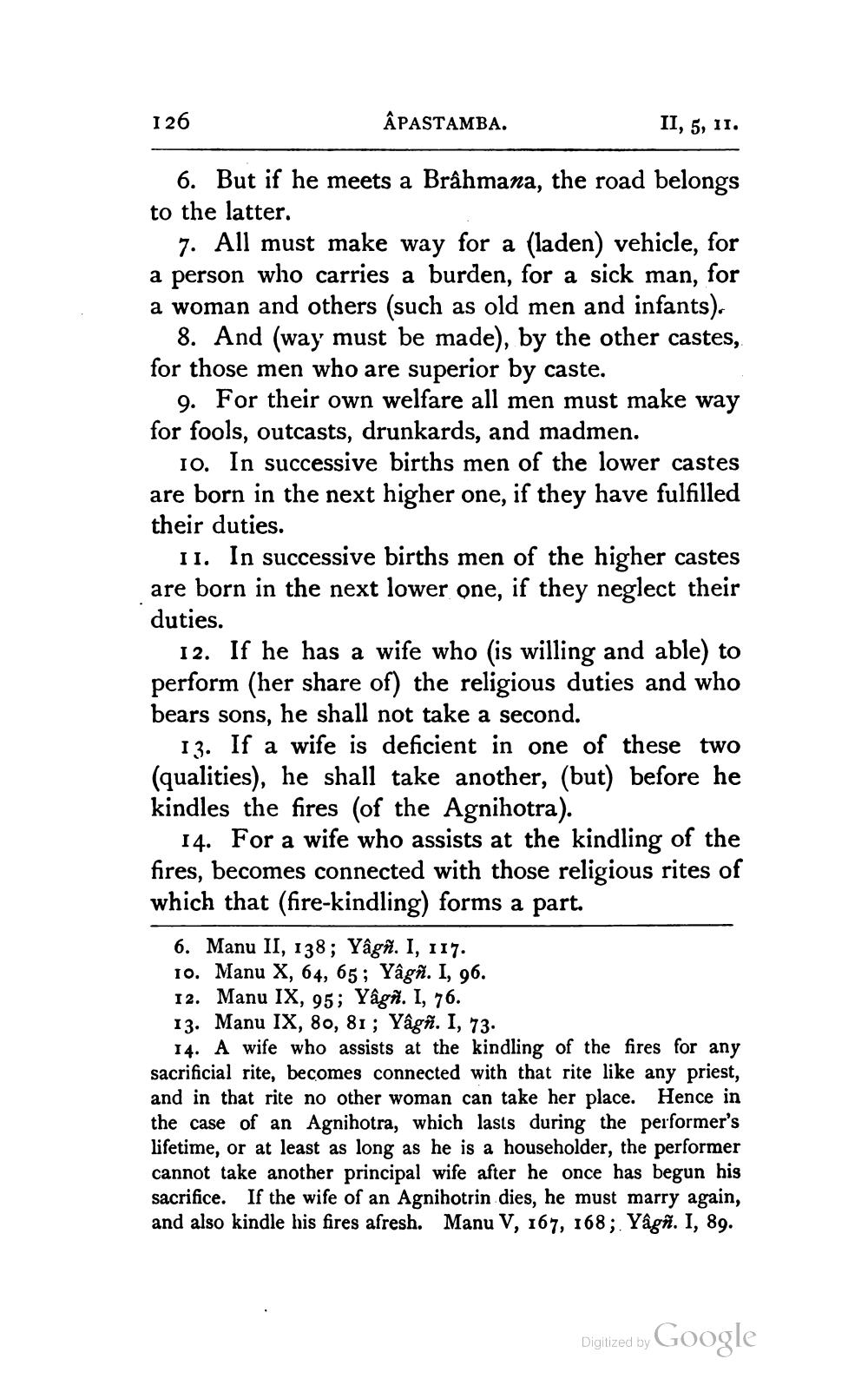________________
126
ÂPASTAMBA.
II, 5, 11.
6. But if he meets a Brâhmana, the road belongs to the latter.
7. All must make way for a (laden) vehicle, for a person who carries a burden, for a sick man, for a woman and others (such as old men and infants).
8. And (way must be made), by the other castes, for those men who are superior by caste.
9. For their own welfare all men must make way for fools, outcasts, drunkards, and madmen.
10. In successive births men of the lower castes are born in the next higher one, if they have fulfilled their duties.
11. In successive births men of the higher castes are born in the next lower one, if they neglect their duties.
12. If he has a wife who is willing and able) to perform (her share of) the religious duties and who bears sons, he shall not take a second.
13. If a wife is deficient in one of these two (qualities), he shall take another, (but) before he kindles the fires (of the Agnihotra).
14. For a wife who assists at the kindling of the fires, becomes connected with those religious rites of which that (fire-kindling) forms a part.
6. Manu II, 138; Yâgñ. I, 117. 10. Manu X, 64, 65; Yâgñ. I, 96. 12. Manu IX, 95; Yagn. I, 76. 13. Manu IX, 80, 81; Yâgñ. I, 73.
14. A wife who assists at the kindling of the fires for any sacrificial rite, becomes connected with that rite like any priest, and in that rite no other woman can take her place. Hence in the case of an Agnihotra, which lasts during the performer's lifetime, or at least as long as he is a householder, the performer cannot take another principal wife after he once has begun his sacrifice. If the wife of an Agnihotrin dies, he must marry again, and also kindle his fires afresh. Manu V, 167, 168;. Yâgñ. I, 89.
Digitized by Google




